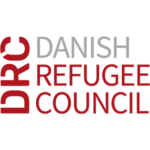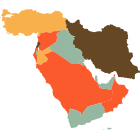Protection Monitoring and Advocacy Reporting
Background
Lebanon has faced considerable challenges due to the large influx of Syrian refugees, which has significantly impacted the country’s resources and infrastructure. To address these challenges, comprehensive protection monitoring and advocacy are essential. The Danish Refugee Council (DRC) initiated a project aimed at monitoring protection concerns and advocating for the needs of refugees and vulnerable host communities. This project focuses on collecting and analyzing data to identify protection issues, assess the effectiveness of interventions, and provide evidence-based recommendations to improve the overall protection environment in Lebanon. The goal is to support and enhance the response to the ongoing humanitarian crisis, ensuring that the most vulnerable populations receive the necessary protection and assistance.
Triangle’s Assignment
Triangle was commissioned by the Danish Refugee Council (DRC) to conduct protection monitoring and advocacy reporting. This assignment involved analyzing and compiling data from approximately 1,000 quantitative surveys and 30 focus group discussions (FGDs) provided by DRC. The objective was to synthesize qualitative and quantitative data to produce high-quality analytical protection monitoring reports. These reports are intended to provide insights into the protection situation on the ground, facilitate continuous feedback loops, and improve the understanding of protection concerns among Syrian refugees and other vulnerable populations in Lebanon. Triangle’s expertise in data analysis and report preparation ensures that the findings are accurate, comprehensive, and actionable.
Objectives
The assignment had several key objectives:
- To provide an overview of existing and available protection-related data collection and analysis frameworks, systems, and structures in Lebanon.
- To improve the understanding of the strengths and weaknesses of existing protection-related data collection and processing systems and mechanisms.
- To map out official and non-official sources on protection-related data.
- To identify key actors engaged in protection data collection in Lebanon.
- To identify challenges in harmonizing and coordinating information related to protection concerns.
- To identify information and specific data needs for developing evidence-based, gender-sensitive protection policies.
- To propose concrete mechanisms to facilitate the sharing of protection-related information among concerned institutions.
- To recommend improvements for collecting and analyzing protection data and integrating them into national-level information systems.
Research Approach & Methodology
Triangle employed a comprehensive mixed-method approach to gather data for the assignment. The methodology included:
- Quantitative Data Analysis: Processing and analyzing approximately 1,000 quantitative surveys using research data processing software (such as SPSS 20.0), conducting cross-tabulations across socio-demographic information to form tables, and creating graphs to compare percentages.
- Qualitative Data Analysis: Conducting 30 focus group discussions (FGDs) to gather qualitative data, which was then analyzed to identify key themes and insights related to protection concerns.
- Field Data Synthesis: Cleaning, synthesizing, and triangulating qualitative and quantitative data to provide a nuanced and accurate reflection of the protection situation on the ground.
- Continuous Feedback Loops: Facilitating continuous feedback loops to build on findings at the field level and ensure that the analysis reflects the evolving protection context.
- Report Compilation: Producing high-quality analytical protection monitoring reports, approximately 12 pages in length, including tables, figures, and references to external sources.
- Stakeholder Engagement: Engaging with key stakeholders, including government officials, humanitarian actors, and community leaders, to gather diverse perspectives and ensure the research is inclusive and actionable.
- Capacity Building: Providing training and support to DRC and other stakeholders to enhance their ability to utilize the research findings and advocate for improved protection policies and practices.
Project:
Protection Monitoring and Advocacy Reporting

Duration:
October 2016 – February 2017
Lebanon
